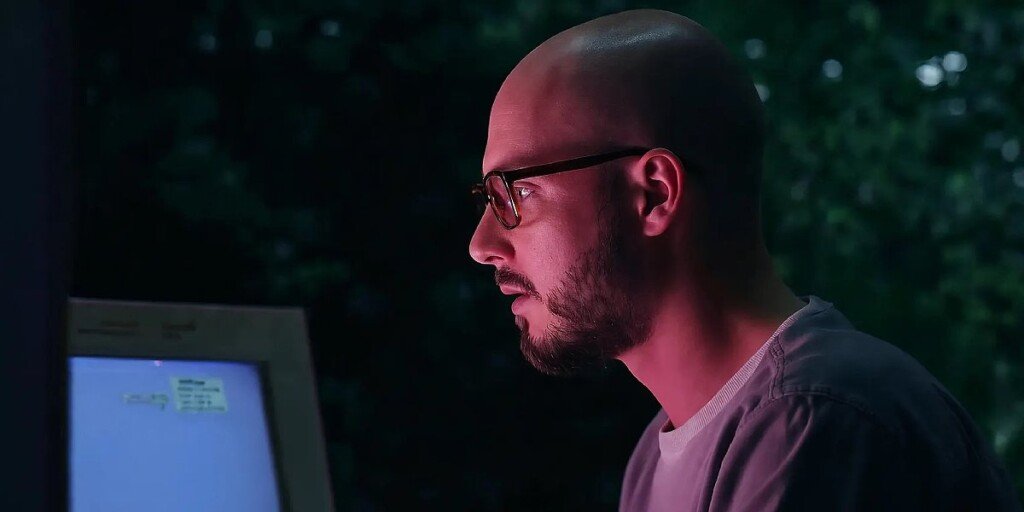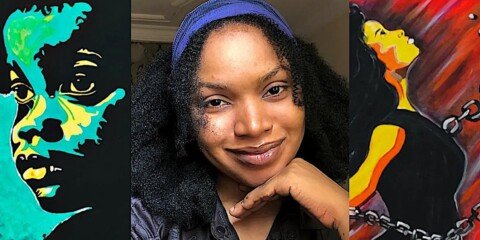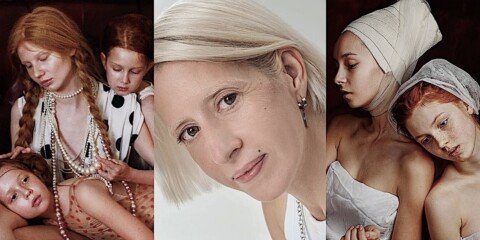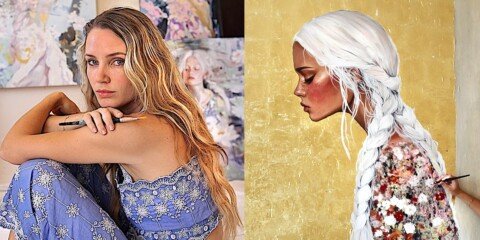Jordan Daniel Chesney (@jordandchesney) is a creative force who defies categorisation. As a filmmaker, music producer and founder of JDC Entertainment, he is driven by deep conviction and relentless curiosity.
From crafting short films and original soundtracks to pioneering AI-powered storytelling, his journey is one of faith, experimentation and purpose.
In this intimate interview, he shares his creative rituals. He discusses the tension between inspiration and perfectionism. His art reflects his personal growth and profound spiritual calling. Whether you’re a storyteller or a believer, Jordan’s perspective offers something rare. If you are simply passionate about meaningful art, you will find honesty without ego and vision without pretence.
🟥 Can you share a bit about your background and the journey that led you to becoming an artist? Was there a defining moment or experience that solidified your decision to pursue art seriously?
Ever since I was young, I’ve always been creating something or another. I think it’s just in my blood. But my decision to get into film became certain when I was about 15 years old. The late 90’s and early 2000’s were great years for cinema; The Game, Being John Malkovich, Dancer in the Dark, Jackie Brown… too many to list. At the time, I was really into writing, and that’s when I thought, I should write a screenplay — no! I should make movies.
🟥 Do you remember the first piece of art you created, and what inspired you to make it?
No, but when I was 15 years old I was writing a story about dual consciousness, and then Being John Malkovich came out. I felt an instant connection to Spike Jonze and Charlie Kaufman. They had so masterfully articulated the ideas that were swirling around in my mind. I tossed the script aside and started writing a new story, one that ended up being a rip off of the film Kids, so I tossed that one aside too, and just kept writing until I came up with something original.
The first proper short film I made was called, Jet, and that idea came to me while I was driving behind a white van in the Hollywood hills. I thought, what if there was a kidnapped kid in the back of that van and I followed them, and tried to rescue the kid.
I jumped into action and started developing the story, but thought, what if I shot the idea out instead of writing it out. What if I pulled everyone together and tried making it in a day, just to see how the story would come to life. So that’s what we did, and the outcome was completely unexpected. Ultimately, I made two versions of the same film; one with a $200 budget, and the other with $10K. This was my film school, and I learned so much. I thought it would be really helpful for other aspiring filmmakers to see, so I released them both, as a sort of test case.
Note: Link to Jet and how it was made. There are two versions for a reason.
jdcentertainment.com/film/jet
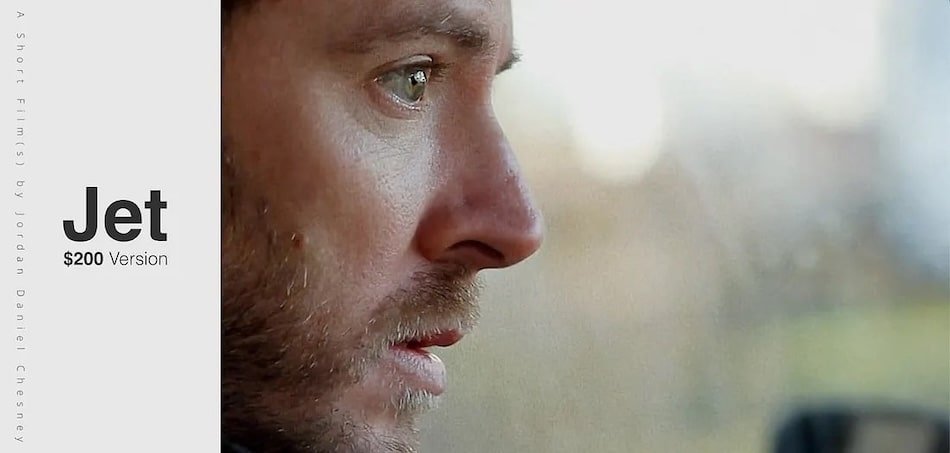
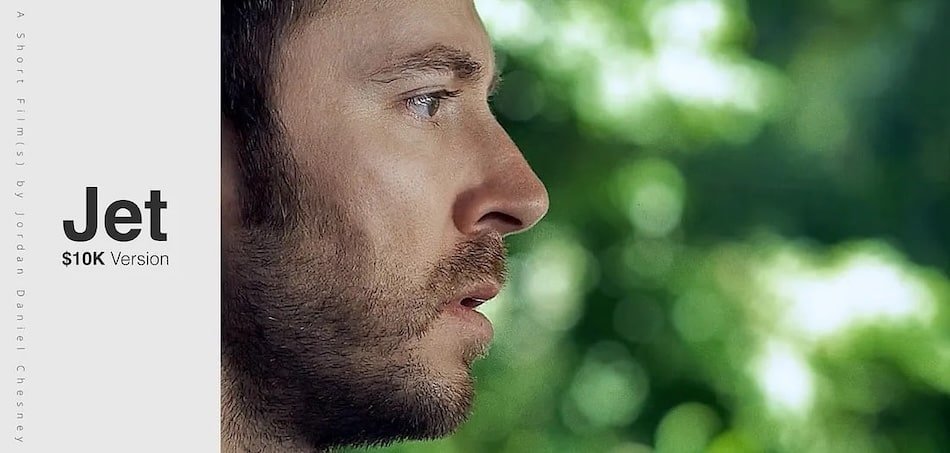
🟥 What inspires you the most when creating your art?
In general, it’s other people’s art. Seeing a great film makes me want to make one. Hearing a great song makes me want to write one. That said, inspiration for a particular story or song will often randomly appear. Other times I just experiment until I stumble onto something interesting, and then other times I have to really dig for it.
🟥 Are there specific activities, rituals, or moments that fuel your creativity?
Depends on the medium. For me, music is vital when I’m writing a story. It really helps the ideas mature. That said, crafting a short film with Generative AI is something quite different. It’s less about writing and more about exploring a character, or a setting, while at the same time trying to work the technology to get what you want (blocking is brutal with AI, right now). This approach is similar to writing music, for me anyway.
I started writing electronic music in Fruity Loops when I was really young, and it was the same process. I had to create and learn, in tandem, 100% of the time. How does this work, and what does this button do? All the while I’m trying to discover a cool melody, beat, and cohesive song.
My general approach to creating is to experiment. I’m constantly experimenting until something interesting emerges. If things change, I let them change. If things don’t work, I cut them. I just let it become whatever it becomes.
🟥 How would you personally define art, and what deeper meaning does it hold for you?
I define good art by what I like. I think it’s 100% subjective. If someone likes a piece of art that I hate, then that particular piece of art is both good and bad. We’re both right and we’re both wrong. No one can take my opinion away, no matter how democratic the consensus, nor esteemed the critic. I like what I like and that’s that. God, however, ultimately knows what is good, and I do make it a very serious point to put my labor before the Lord. The substance of my work can only come from God. Hopefully, I’m listening.
🟥 What part of the creative journey excites you the most — conceiving an idea, the act of creating, or finishing the piece?
Once I’ve got an idea that I’m excited about, and I can see it coming together, that’s the most exciting part for me. It’s a moment I ride for as long as possible, but if the project is big enough, it inevitably wanes, and must be kick-started over and over with sheer determination. So I guess, that moment after the inspiration and before the hard work of finalization… that’s my favorite moment.
🟥 Do you follow a structured plan when creating art, or is your process more spontaneous?
I typically just experiment until something interesting emerges. Once that happens it does become more structured. I have fun and then I get to work.
🟥 What time of day do you feel the most creative, and why do you prefer that time for your work?
The morning. The older I get, the more of a morning person I become. These days, I’ll wake up around 5:30am, drink some coffee, read the Bible, and then immediately jump into creating something.
I like the mornings because I don’t want to work while I’m tired, if I don’t have to, and during the evening, I hang out with my wife. There’s a time for everything, and every day there should be time to push our passions to the side and make room for the things in life that matter most, the ones we love.
🟥 Do you listen to music while creating, and how does it influence your process?
Absolutely. Constantly. I have carefully curated playlists for almost every vibe I need. If I’m working on something with a dramatic vibe, I’ll usually throw on my Ambient Playlist. If I’m working on something with a calm vibe, Piano. If I need a little momentum, Glides. In fact, one time I was writing a screenplay called, The Detective and I ended up just making a score for the film, so I could write to that. I got a little distracted.
Making AI films is a little different. Once I have a few clips and start editing, the music stops and the scoring begins. But I guess, whether I’m listening or composing, there’s usually always music in the air. I don’t like silence.
🟥 Do you have any specific rituals or routines you follow before starting a new project?
Pray over it. Put it before the Lord.
🟥 What is the most challenging aspect of creating art, and how do you navigate those?
Yes, there’s only 24 hours in a day.
I’m an unapologetic perfectionist. I’m not saying that’s a good thing, but that is absolutely my natural inclination, and I don’t try to change it. I will refine, and refine, and refine until I’m satisfied. Subsequently, I’ll labor over the smallest of details for days, turning projects (sometimes) into months, or even years.
Navigating personal projects is different to professional ones. Professionally speaking, I just work as hard as I can with the time that I have, and with this approach I do have to make compromises that I otherwise would not make. Personal projects, however, don’t often have this external pressure, so naturally I take longer to finish.
🟥 What keeps you motivated during times when creativity feels like a struggle?
I just switch gears. If I’m struggling with one story or song, I just switch to another. I don’t really struggle with creative blocks, because I try to diversify my interests in such a way that makes it easy to switch things up and keep going.
🟥 Can you share an experience or lesson that contributed the most to your growth as an artist?
I don’t think an artist has much to say until they’ve suffered. It’s been the hardest parts of life that have added the most substance to my work. I often won’t overthink what I’m creating, because I find that what I’m saying simply becomes clear as I get it out, versus meticulously crafting my message. And it’s as I get it out that I start to see what’s being said, and why. Without a life lived, what kind of opinion is really worth sharing?
This goes without saying, but hard work is also one of the biggest components of growth, regardless of your field of expertise. I work round the clock, creating almost all the time, and if anyone wants to get paid to create art, you have to work two jobs till you only have to work one.
🟥 Is there a piece of advice you received that completely changed the way you create or think about art?
- God gave you talent. What are you going to do with it?
- If you’re not going to go to college, then you have to learn to manage your time well, self discipline, and find your community.
🟥 When you view a piece of art, what qualities or emotions do you look for?
I think it’s a mix of aesthetic instincts, an original style, and a genuine voice. I’m not a huge fan of derivative work. I can appreciate it, but I won’t love it. I myself create a lot of derivative art, but I try to throw it away and move on — just let it be a stepping stone. My favorite art is by artists who have their own style, care deeply about the details, and don’t pander to the masses.
🟥 How do you perceive art’s purpose and its impact on individuals and society?
An artist may make something and think, “This is profound”, but culture may look at it and say, “That’s dumb”. Whether that piece of art is good or bad is almost irrelevant. What’s valuable is that it caused division. Division is what causes us to look inward and consider where we stand, and why we stand there, and that’s a good thing.
Don’t ever believe the lie that “unity”, in and of itself is good. It is not. Unity with that which is good, is good. Art forces opinions and then conclusions about important things to rise to the surface, whether people like it or not, and that is why art will always be valuable and personal.
🟥 In your view, what do concepts like “passion” and “uniqueness” represent in art?
I wouldn’t say “passion” and “uniqueness” are concepts. I’d say, passion is a personality trait and uniqueness is the result of practicing your art form until you create something new. Without passion, I don’t know if you can be a great artist, and without practice, I don’t know if you can create something unique. Maybe you can, but I don’t think I’ve seen it.
I think these qualities in the artist and the art represent a honed talent, and it’s always admirable to see someone make the most of what they’re given. We should all do that, make the most with what we have.
🟥 What are the non-negotiable essentials in your workspace?
A massive monitor, KRK speaks and subwoofer, plants, lots of sunlight, a view of nature, a comfortable chair, a clean and tidy environment, and an open door so my wife and dog can come say hi, and interrupt my work whenever they please. The last one is vital. Let the ones you love interrupt. They’re more important.
🟥 Do you have a favorite tool or object in your studio that holds sentimental value?
No. I’m not sentimental.
🟥 What’s the one thing you always need by your side while creating art?
The Holy Spirit.
🟥 Who are the artists or people you admire the most, and why?
This changes and grows, but…
- The Cohen Brothers
I just think they’re incredible storytellers. No matter the story, they seem to constantly explore the mortality of man, and God’s justice enacted. I love their style, I love their themes, and I love their writing. - S. Craig Zahler
He’s quickly become one of my favorite filmmakers. I particularly love his insistence to explore stories in which the current culture takes issue. I think, as an artist, this is vital. He has courage. Plus, his raw, realistic style is right up my alley. - Benny Safdie
This guy is probably the best director around today, when it comes to working with actors, in my opinion. The performances in all his films are flawless. And, as a sucker for Super 16mm film, he always delivers the aesthetic vibe that I love so much. - Nathan Fielder
I genuinely believe this man is a genius. Not sure what else to say except he seems to have a brilliant mind, and I think he’s one of the most prolific artists of our time. - Ari Aster
Often compared to Kubrick, and I think rightfully so, this guy is one of the most interesting storytellers around. His films slap you around, comfort you deeply, and scare you out of your wits. He too brings out some of the best performances I’ve ever seen, and his visuals are simply perfect.
🟥 Imagine you could create a piece of art in collaboration with someone from history. Who would you choose and why?
Jesus. He invented art.
🟥 What’s your superpower?
I don’t have one.
🟥 What does success as an artist mean to you — recognition, impact, or something else entirely?
If I create what God made me to create, then I’ve succeeded.
🟥 Can you tell us about a piece of art that holds a special place in your heart and why it’s so meaningful to you?
Most recently, I’d say the show, The Curse by Nathan Fielder and Bennie Safdie, and Beau is Afraid by Ari Aster. Both stuck with me for weeks on end, forcing me to rethink things over and over until I drew a conclusion. They gave me just enough to want more. This show, and this film forced me to consider things deeply without demanding that I draw their conclusions. I really value that approach.
Conversely, if I get a sense that the artist is “preaching” at me, I’m instantly detached. I don’t think I’d even call it art at that point. It’s more of a Ted talk dressed up like art. This happens all too often with modern cinema, and I end up turning most things off 15 minutes in. I have no time for artists that virtue signal and talk down to their audience.
🟥 What are your dreams or goals for the future?
I want to make films and shows full time. I love AI, so I’m going to keep exploring that world, but as soon as the budgets open up, I’ll start combining live action and AI.
I also want JDC Entertainment, my film and commercial company, to take off to the point where I can hire my best friends and favorite artists to all be collected in one big collective/roster.
🟥 How would you define a “creative person”?
Someone with a unique perspective, who expresses themselves honestly, in a captivating way.
🟥 In your opinion, what are the positive and negative differences between being an artist today and being an artist a century ago?
Limitations are often a good thing. When our backs are against the wall we have to persevere, and perseverance produces character. It was harder to be a recognized artist in the past, so those that made it had to truly prove themselves and give it their all.
Today, you can be a passive artist, creating things quickly, caring very little about them, and that’s both a positive and a negative. That said, I consider myself really fortunate to have lived through the invention of the internet, the first DSLR video camera, and now the invention of AI. I’ve gobbled up almost every breakthrough, wholeheartedly, and have no reservations for these advantages. It’s just clearly caused a dilution of quality. But hey, at least I get to be a part of it, and I’m grateful for it.
🟥 In your opinion, what are the best and most challenging aspects of being an artist?
I’d say the best aspect of being an artist is simply creating. That’s my favorite part. I have lots of work I’ve never released, but it doesn’t bother me, because it was so much fun to create. When people pick up what you throw down, it’s very satisfying, but it’s not everything. I actively try not to be lured in by attention and recognition, because it inevitably leads to pride. That said, it is still very meaningful when people appreciate what you’ve created.
My greatest challenge is simply time. I do wish I could just wake up and make whatever I wanted to make, each and every day. But we all gotta work. The ground will not toil itself, and this keeps us all in the proverbial past time. Just like the artists of old, we have to persevere and find a way through, against the odds.
🟥 What advice would you give to aspiring artists who want to build a meaningful career?
A few pieces of advice:
- Guard your heart, because everything you do flows from it.
- Forgive people, and do not burn bridges.
- Start now, work hard, and diversify.
- Put others first and let yourself be last. Find joy in playing second fiddle.
- Consider the one who created you, and what He wants you to create.
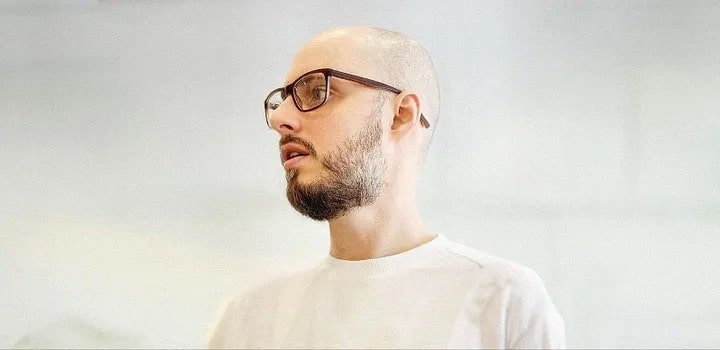
Relevant Links:
Portfolio: jdcentertainment.com
Twitter: x.com/jordandchesney
YouTube: youtube.com/@JordanChesneyVideos
Instagram: instagram.com/jordandanielchesney
LinkedIn: linkedin.com/in/jordan-daniel-chesney-018a6126a
IMDb: imdb.com/name/nm1863743
Spotify: open.spotify.com/artist/084jUbXN3ysruPlmZai1tm
Note: The answers given by the artist have been quoted verbatim without any editing to preserve the artist’s authentic voice for our readers.


